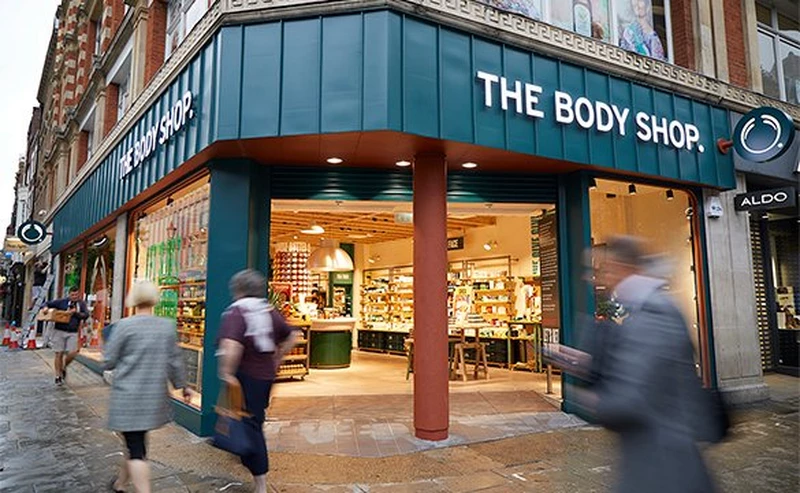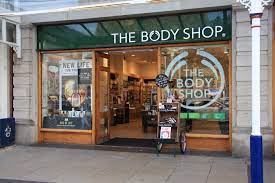The United Kingdom division of The Body Shop has initiated the process of administration, which may result in the loss of up to 2,000 positions.
The retail outlets will continue to operate as usual while efforts are made to rescue the UK-based company.
Restructuring firm FRP, appointed as the administrator, has announced that it will now explore all possible options to determine the company’s future.
The late Dame Anita Roddick founded The Body Shop in 1976 as a single store in Brighton.
It grew into a global brand, pioneering in ethical business and campaigning against animal testing in cosmetics.
Establishing a “more nimble and financially stable UK business,” according to FRP Advisory, is a critical step in transforming the company into a contemporary beauty brand “that is competitive in the long term and relevant to customers.”
The administrators are expected to implement significant cost savings, including on property and rental expenses, which may lead to job losses.
After nearly half a century, it is highly unlikely that The Body Shop will completely disappear from UK high streets.
Along with its London headquarters, the retailer’s British operation includes over two hundred stores and a handful of franchises across the UK.
In November, Aurelius, a European private equity firm, acquired the brand for £207 million. Following poor sales performance during the crucial Christmas trading period, the company made the significant decision to enter administration.
The Body Shop “faced a prolonged period of financial difficulties under previous ownership,” according to FRP.
Since its founder Dame Anita sold the company in 2006, shortly before her death the following year, The Body Shop has changed ownership three times.
With younger consumers particularly fond of Lush’s bath bombs and facial masks, there is hope that the company will undergo restructuring to compete more effectively with such brands.
Lesley Hayhurst, aged 70, a local resident of The Body Shop’s first location in Brighton and one of the store’s earliest customers, shared that she first visited the shop to have her ears pierced when she was in her early twenties.
“It was so revolutionary; nothing else like it existed. The whole atmosphere was vibrant and cosy at the same time,” she said.
However, according to Lesley, the products she loves are expensive, and she cannot always afford to buy them.
“It’s tragic. We are losing yet another of our high street institutions,” she continued.
Jasmine Payne, 39, also has fond memories of weekends spent at The Body Shop, particularly drawn by the company’s commitment to not testing on animals.
“I was a teenager in the 1990s and am nearly 40 now; while I still love the products, they are too expensive,” she said.
Jasmine notes that alternative shampoos and conditioners are available for at least half the price and are not tested on animals.
“If I could afford it, then I would buy Body Shop products,” she stated.
FRP Advisory mentioned that, like other retailers, the brand has faced a “challenging trading environment” in recent years due to tightening consumer budgets and the growth of online retailing.
For instance, Wilko entered administration due to its inability to maintain competitive prices, although the brand name has since been revived in high street locations.
Andrew Goodacre, head of the British Independent Retailers Association, described the latest developments concerning The Body Shop as “sad.”
“It seems every few months we hear about the decline of a national retailer… Our thoughts are with the employees and franchisees during this period of uncertainty regarding the future of this chain.”





